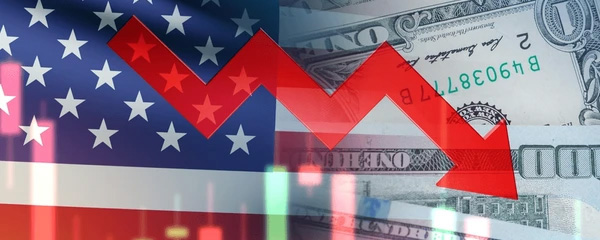UNCLE SAM'S Solo Act


The rise of figures like former U.S. President Donald Trump to power, and their continued political popularity, has been largely predicated on the perception that the United States has become a failing nation – tired, weakened, and heading towards decline. Contrary to this self-proclaimed failure, however, the foreign policy approach of such leaders often overestimates the power of the United States. Those believing in such approaches, along with their advisors, seem to believe that even if the country is internally troubled, Washington's unilateral actions can still compel the world to bend to its will and to accept American terms.
However, since World War II, the primary source of American strength has not been coercion, but cooperation. Such approaches ignore this historical truth, taking for granted all the benefits that a cooperative approach has provided. Those embracing these approaches seem incapable of imagining a future where other countries decide to opt out of the existing international order led by the United States, or to create a new order that is detrimental to American interests. Yet, this is precisely the scenario that recent U.S. administrations have been rapidly turning into a reality.
Political scientist Michael Beckley, in Foreign Affairs, argued that the United States is becoming a "rogue superpower" – neither internationalist nor completely isolationist, but aggressive, powerful, and willing to go to any lengths to pursue its interests. This characterization is largely accurate, but it does not fully capture how American dominance can be limited or undermined by other countries.
During the tenure of leaders like Trump, the question has often been whether the United States is withdrawing from its role as a global leader. But a more pressing question is: has the rest of the world already begun to withdraw from America? Is the world now beginning to abandon the collaborative system that has been the foundation of American power for decades?
Some analysts believe that even if America's allies or neutral countries disagree with current approaches, they have no choice but to go along with the United States. In the long run, they will adapt to this system, trying to please the United States as much as possible, and adopt alternative strategies only when necessary. After all, even if they become angry and distrustful of the United States, America will still seem less dangerous to them than China, Russia, or other competitors.
According to this view, the United States, even under a leadership seen as difficult, is still the best among all possible global leaders. Moreover, even if other countries wanted to opt out of the U.S.-led order, they do not have the collective or individual capacity to do so. They may recall the time when America was more internationalist, open, and collaborative, but now they will have to learn to live with a more nationalist, self-centered, and rigid America.
Historical Perspective: America and Allied Nations
America's global dominance was not merely the product of its military power. After the devastation of World War II, the United States demonstrated foresight and strategic skill by building a global order based on shared ideological foundations, strong institutional structures, and mutual trust. Whether it was the reconstruction of war-torn Europe through the Marshall Plan, or the creation of military alliances such as the North Atlantic Treaty Organization (NATO), the United States not only provided its allies with financial and security assistance, but also connected them to a sense of shared purpose, allowing them to feel equal to America, rather than subordinate to it. During the Cold War, the United States worked with its allies to build a strong front to defend democratic values and to block the spread of communism. In this period, America's leadership not only provided direction, but also ensured compliance with international rules and laws, increasing its credibility and acceptance on a global scale.
However, the current scenario indicates the demise of this golden age. In particular, during recent administrations, the 'America First' policy has severely eroded the cornerstone of international partnerships that had been established for decades. Such administrations have not only distanced themselves from important multilateral forums such as the World Trade Organization, the World Health Organization, NATO, and the Paris Climate Agreement, but have also questioned the effectiveness of these institutions on many occasions. This policy has sent a clear signal that America is now withdrawing from its traditional, collaborative role of global leadership and is prioritizing its domestic priorities over international cooperation. This trend has not only disappointed America's traditional allies, but has also raised serious doubts about its credibility and leadership capacity on a global scale.
Contemporary Challenges and America's Strategic Dilemma
The twenty-first century has given rise to many new and complex challenges in the geopolitical landscape, which are virtually impossible for any nation to face effectively alone. The rapid economic and military rise of China, Russia's growing aggression, global pandemics such as COVID-19, the threat of international terrorism, and issues such as climate change pose serious crises for peace, security, and prosperity on a global scale. The unilateral policies mentioned above are undermining the global capacity to deal with these complex and interrelated problems collectively.
Although the current administration has made some efforts to re-establish a spirit of international cooperation and multilateralism compared to its predecessor, America's credibility is no longer what it used to be. There is lingering apprehension among NATO member states about whether America will revert to its previous policies in the future. Similarly, on important strategic platforms such as the Quad in Asia, allies such as India, Japan, and Australia are worried about whether America will maintain its commitment to the region in the long term, or whether it may make unexpected changes to its policies due to domestic political compulsions. This uncertainty is prompting these nations to consider their foreign and security policies more cautiously and independently.
The Rise of China and American Isolation
China's extraordinary economic and military rise has undoubtedly emerged as the greatest strategic challenge to the United States. If America becomes estranged from its traditional allies, it will become a lone power to resist China's growing influence, which could prove strategically harmful.
China is not only attracting countless nations in Eurasia, Africa, and Latin America economically and politically through its ambitious Belt and Road Initiative, but is also rapidly transforming the global balance of power by strengthening its military presence in the South China Sea and making rapid progress in the technological sector. China is also expanding its role in international forums and increasing its influence in multilateral institutions. In such a scenario, standing united with its traditional allies may be America's greatest strength. If America makes its allies feel isolated or disregards their interests, it will not only lose its ability to effectively resist China's growing influence, but will also weaken its efforts to maintain global rules and norms.
The Crisis of Democratic Values
America's 'going it alone' is not only a symbol of diplomatic failure or strategic weakness, but also indicates a decline in the prestige of democratic values globally. For a long time, America has been the champion of the principles of democracy, human rights, and individual freedom around the world. It has not only supported these values, but has also intervened on many occasions to protect them. This moral authority of America has been an important basis for its global leadership.
However, some events that have taken place within America in the past decade have seriously challenged this moral superiority. Unpleasant events on Capitol Hill, nationwide protests over racial inequality, increasing allegations against the freedom and credibility of the media, and internal developments such as the politicization of the judiciary have undermined the democratic foundations of America and tarnished its image globally. When democratic values themselves appear to be eroding in America, it becomes more difficult for it to preach democracy and lead the world. America's 'isolation' in this context not only weakens its foreign policy, but it is also a cause of disappointment for those democratic forces that are struggling for freedom and human rights around the world.
The Role of Europe and Asia
If America withdraws from its role of global leadership or displays uncertainty regarding its commitments, important nations such as the European Union, the United Kingdom, Japan, and India may have more responsibility to face global challenges and to maintain the international order. However, it is important to question whether these nations are fully capable of discharging this increased responsibility.
With regard to Europe in particular, the European Union is striving to develop a more independent and autonomous strategic identity without America. The Russia-Ukraine conflict has compelled European nations to reconsider their security and defense policies. However, from an economic, military, and political point of view, it will be a major challenge for European nations to immediately replace America's long-term presence and support.
Asian nations such as India and Japan, which are America's natural allies from the perspective of democratic values and strategic interests, also expect that America will permanently maintain its partnership in this region, rather than adopt a merely opportunistic approach. Given China's growing influence, it is important for these nations to maintain strong relations with America for their security and regional stability. However, the domestic political instability of America and fears of unexpected changes in its foreign policy may prompt these nations to maintain their strategic autonomy and to strengthen their relations with other powers as well.
Which Direction Should America Take?
The United States stands at a crossroads, where it must make the crucial choice of whether it truly wants to remain detached from the global order like a 'lone warrior', or whether it should join its traditional allies to become an integral part of a more inclusive, balanced, and multilateral global order.
Pursuing unilateral decisions and a self-centered foreign policy may give America short-term political gains, but its far-reaching consequences will be far more serious and devastating. Taking into account the complexity of global challenges and the rise of other powers, it is essential for America to work with its allies not only for its own security and prosperity, but also to maintain global stability and order.
Conclusion
If the world's most powerful democracy weakens its decades-old partnerships and chooses the path of isolation, not only will global stability and security be threatened, but also the values of freedom, human rights, and democracy that America has supported for so long will be in crisis. n
Anwar Hussain is a senior journalist and lecturer.